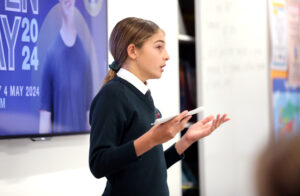Young People, The Future of Equality – Jennifer Oaten
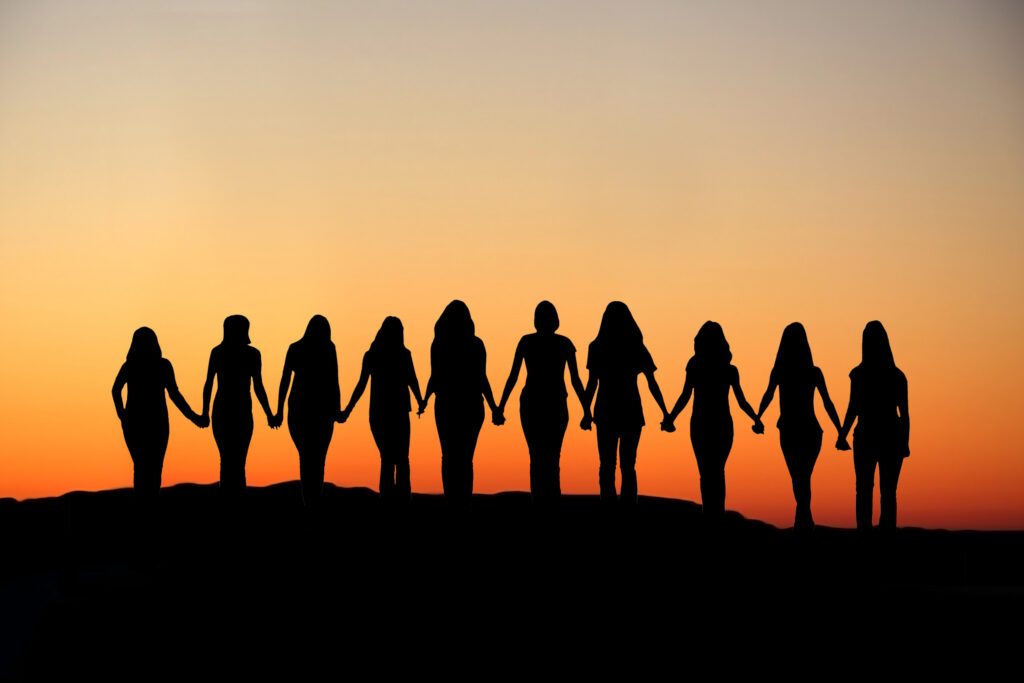
Half the world’s population are women. On International Women’s Day, we celebrate these women and girls around the world and applaud all they have achieved and the vital contributions they have made. Women have broken down barriers and dismantled stereotypes; the number of girls in classrooms has improved, and growth has been seen in women in leadership positions, yet there is still more to be done.
I have a daughter who graduated from Year 12 in 2023. I hope that she feels empowered and confident and can find her voice when it comes to issues that directly affect her in the world beyond school, particularly in the area of equality.
As educators, how do we ensure these qualities of strength, determination and passion, developed in a school environment, enable our young women to graduate and to go into the world having a voice and being advocates for themselves and other minority groups for greater equality? It is our young people who needs the skills to lead this ongoing improvement in the area of equality.
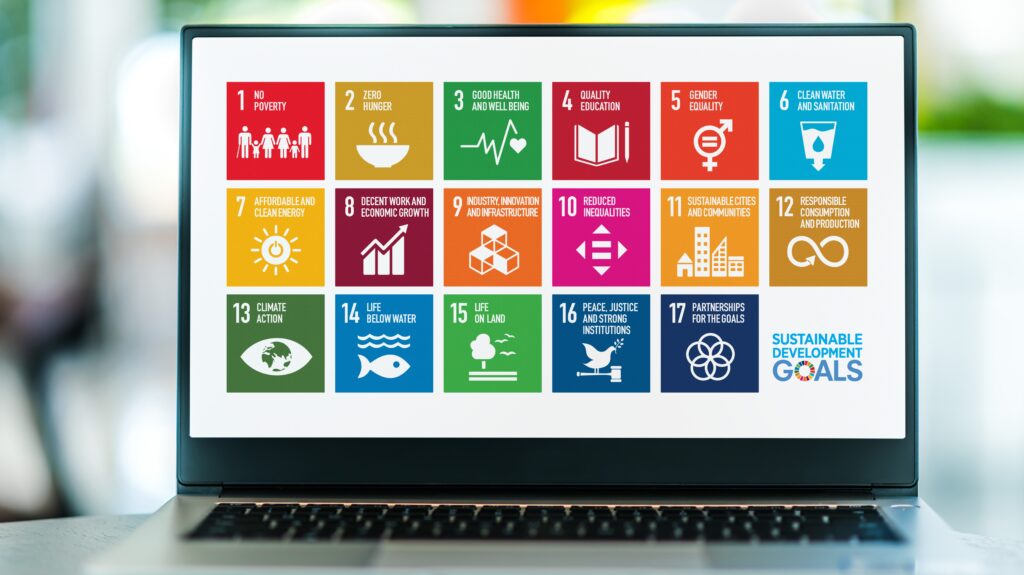
As the world commemorates International Women’s Day, at Santa Maria College we explore this year’s themes. The United Nations’ theme, “Invest in Women: Accelerate Progress,” urges money to be prioritised for funding childcare, training, education and programs to end violence, to name a few.
Mirroring this sentiment, “Inspire Inclusion” encourages all sectors, to embrace and value the experiences of women, aiming for a society where every woman and girl is empowered, valued and has a key role to play.
The 2023 progress report on the UN Sustainable Development Goals indicates the areas that are providing the biggest challenges on the road to global gender equality in our world are:
- Lack of women in leadership – 28 per cent of management positions are held by women
- Poverty – More than 340 million women and girls are projected to live in extreme poverty by 2030.
- Workplace discrimination and inequalities – Only 61 per cent of prime working-age women participate in the labour force, compared to 91 per cent of prime working-age men.
- An imbalance in unpaid care work by 2050 – women globally will still be spending 2.3 more hours per day on unpaid care work than men, limiting participation in education and employment.
- Social Norms and Cultural Practices – Globally, one in five young women is married before the age of 18.
- Inadequate access to education and health care – An estimated 110 million girls and young women may remain out of school by 2030.
- Food insecurity – Nearly 24 per cent of women and girls are expected to experience moderate to severe food insecurity by 2030.
- Violence against women and girls Each year, 245 million women and girls experience physical and/or sexual violence by an intimate partner.
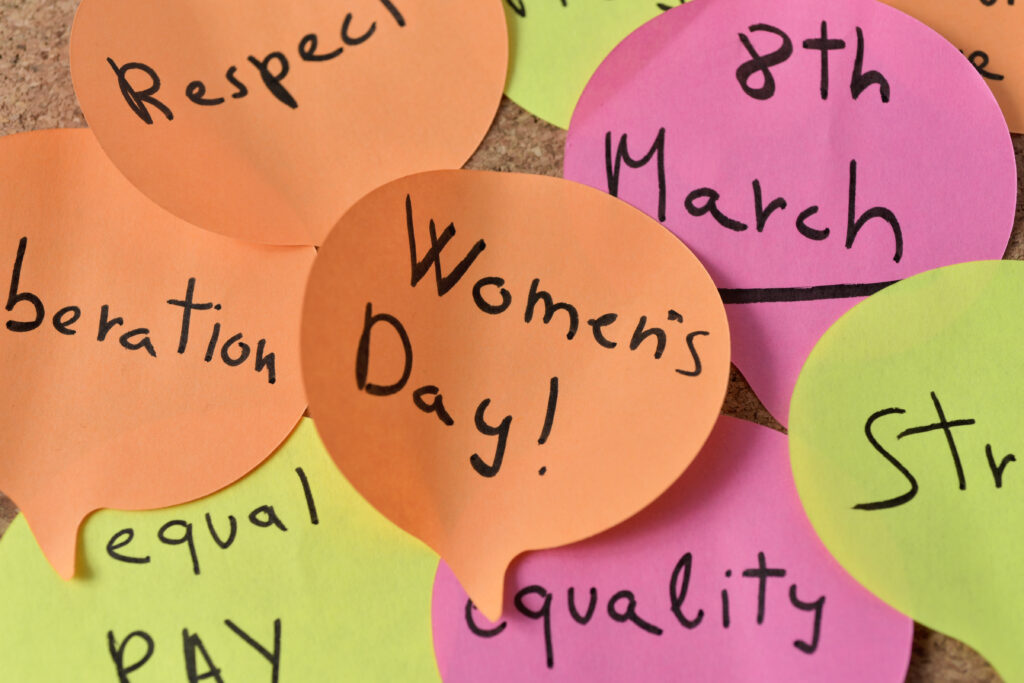
The Pivotal Role of Education in Fostering Equality
Education emerges as a beacon of hope in diminishing gender disparities. At Santa Maria College, we believe education is more than just knowledge; it is about moulding mindsets and empowering young women to spearhead societal change. Education instils the courage to understand and assert one’s rights and nurtures an environment where every voice is acknowledged. We believe that educating our students equips them with the necessary tools to dismantle barriers and forge a future where they are active, equitable participants in all life spheres.
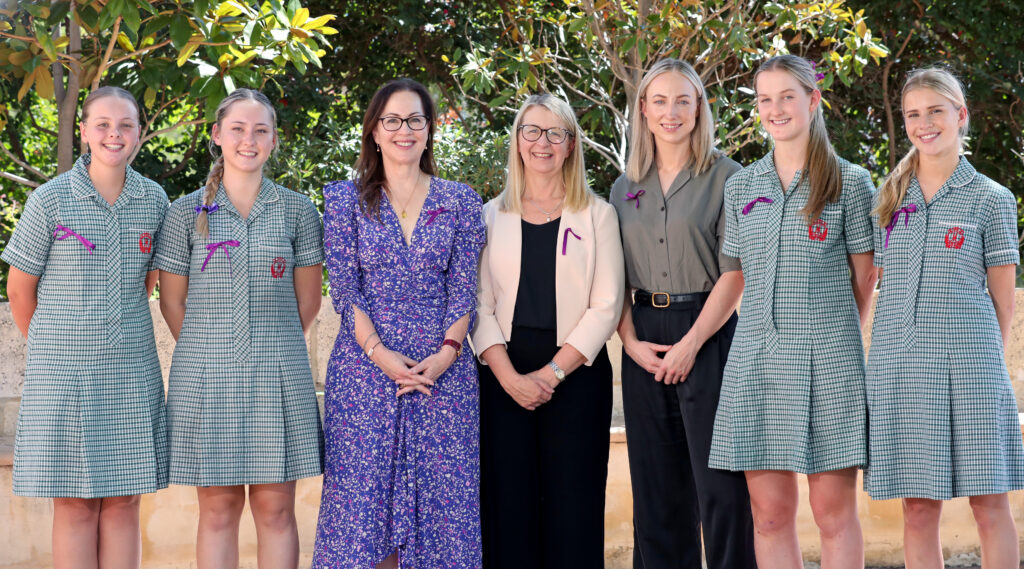
Santa Maria's Celebration of International Women's Day
Today, our college was infused with a sense of pride as it wholeheartedly embraced International Women’s Day. An assembly dedicated not just to celebrating women’s achievements but also to kindling a flame for transformation was led very capably by our student leaders. Our students were inspired by the stories of our alumni Fiona Kalaf and Rachael Cowcher.
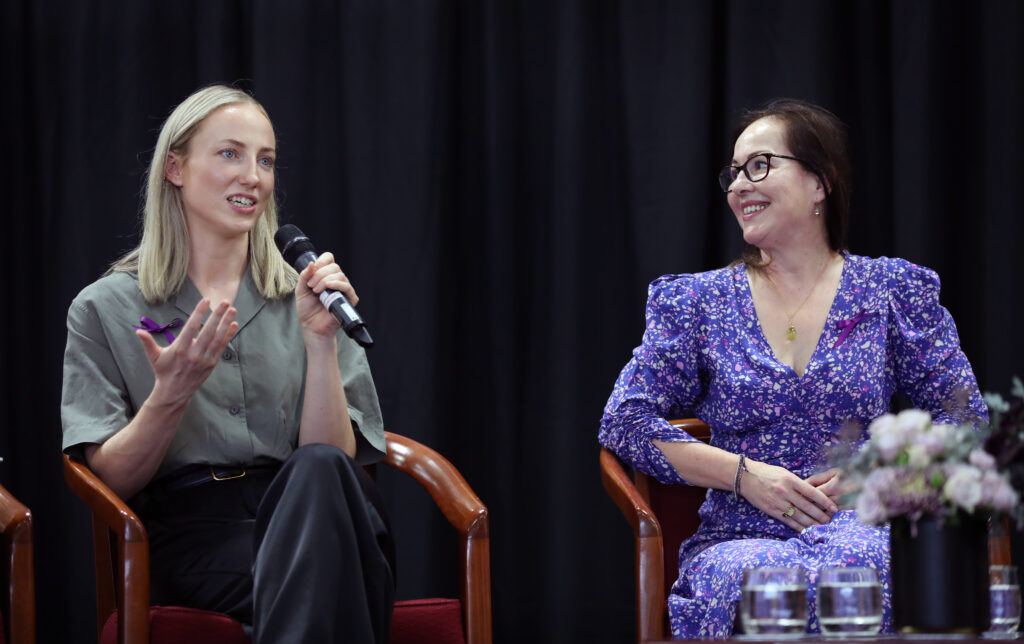
Rachael Cowcher – Class of 2011
Rachael acknowledged her mother as her prime inspiration in leadership, underscoring the significant impact of women in leadership roles and their empathetic, compassionate workplace demeanour. She pointed out the enduring challenges, cautioning that progress is not a given. Rachael also spoke about the importance of resilience in adversity.
Fiona Kalaf – Class of 1984
When discussing the importance of women exploring various interests before choosing a career, Fiona shared insights from her own career path. She identified herself as a curious lifelong learner, traits that have greatly enriched her journey. Fiona stressed the importance of seizing opportunities even in male-dominated fields and remembering that you are just as deserving as anyone else on the team.
Empowerment Through Education
These discussions not only showcased our alumni’s remarkable trajectories but also reiterated the vital message that education is a formidable instrument for gender equality. Our students left the Assembly motivated to pursue their passions, utilise their unique voices, and remember that their potential is limitless.
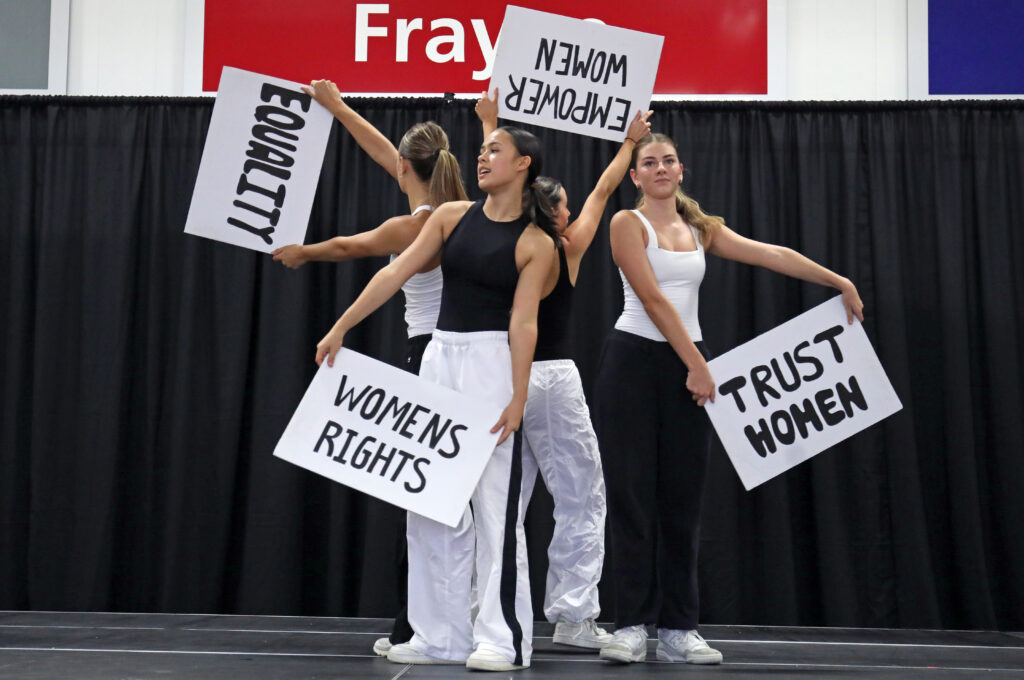
The panel session concluded with a powerful performance by four talented Year 11 dancers, showcasing a wonderful piece titled “Empowering Women”, and the Assembly closed with an ABBA classic performed by our Year 12 music students.
Today’s celebrations remind us that the quest for gender equality persists. Let our commitment at Santa Maria to empowerment through education serve as a beacon for our young people and the wider community as we hope for a world where gender equality is not just a goal but a reality.
Equality is not just good for women; it is good for all of society, enabling all to live in a world of respect, justice and inclusion.

Michelle Attains Lead Teacher Status
Our Head of Professional Learning, Michelle Carrick, recently attained national certification as a Lead Teacher, one of only 64 people nationally to have attained this certification in 2023.

From the President: May 2024
We have some great stories in this month’s blog. Also Look out for information about our OGA Movie Night screening of The Way, My Way.
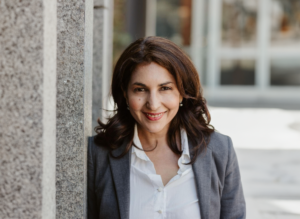
Lisa Sorger: Sisterhood Network Series
Join us for an inspiring evening at the second session of our Sisterhood Networking Series with Dr Lisa Sorger (Ramakrishnan, 1987).
- Featured
Author: Santa Maria College
Santa Maria College is a vibrant girls school with a growing local presence and reputation. Our Mission is to educate young Mercy women who act with courage and compassion to enrich our world. Santa Maria College is located in Attadale in Western Australia, 16 km from the Perth CBD. We offer a Catholic education for girls in Years 5 – 12 and have 1300 students, including 152 boarders.

